Dave Armstrong's Blog, page 33
December 3, 2012
Definitions: “Traditionalist” vs. “Radtrad” / Supposed “Neo-Catholics”
 [ source ]
[ source ]This is Chapter One of my book, Mass Movements: The Extreme Wing of “Traditionalism,” the New Mass, and Ecumenism .
* * *
1) I have always regarded "traditionalists" as Catholics (and refer to them as such on my web page devoted to them). I admire several things about them: their zeal and concern for orthodoxy, their desire to see liturgical and architectural excellence, their observance of traditional Catholic piety, traditional Catholic morality, willingness to take on liberals and modernists, desire to see people come into the fullness of the Catholic Church, etc. I oppose (as a Catholic apologist) what I feel to be errors and excess in their ranks. There is nothing “personal” (let alone “hateful”) about it.
2) I know that most "traditionalists" are not formally affiliated with schismatic breakaway groups, and that sedevantism (the position that there is no sitting pope) is a tiny, extreme, radical wing of the movement.
3) Similarly, I don't classify "traditionalists" (excepting the most extreme ones) as "schismatic." I have used the term "quasi-schismatic" in the past, but have tried to use it more recently only in extreme cases. Most of what I write about Catholic "traditionalism" is not intended at all to characterize the entire group. In past efforts on the Internet (starting in 1997), I was usually responding to arguments I encountered directly, or assertions of more radical ("radtrad") elements of the movement. That will be the case presently, as well. I have learned a lot over fifteen years, especially in recent dialogues. I understand also that there is a large diversity of opinion in “traditionalist” ranks.
4) Most "traditionalists" accept the notion of the indefectibility of the Church. I have used the term "quasi-defectibility" to describe a position holding that the Church is still the Church, but in very dire condition and barely surviving. I've always agreed (closely following my mentor, Fr. John A. Hardon, S. J.) that modernism is the greatest crisis in the history of the Church. Disagreement with “traditionalists” occurs regarding its exact cause and location, and the solutions to the problem.
5) Most "traditionalists" accept the validity of the Novus Ordo or “New” or Pauline Mass (now also referred to as the “ordinary form”), but consider it objectively inferior to the Tridentine Mass, (extraordinary form) and (as I wholeheartedly agree) often subjected to the grossest abuses in practice. I agree that all abuses ought to be eliminated, but the Church allows and encourages liturgical diversity within a proper observance, so that people can worship as they please, within a context correct, orthodox liturgical practice. There are 22 rites in the Catholic Church.
6) I don't have the slightest objection to anyone preferring to attend the Tridentine Mass. I was completely in favor of the 2007 decree from the Holy Father to make that Mass more widely available (that had been my own position since becoming a Catholic in 1990). I've been attending the only parish in metro Detroit that offered it prior to that time, and have attended the very reverent, traditionally practiced Novus Ordo Latin Mass there since 1991 to the time of writing. This book will consider as “radtrads” those who insist on continually bashing the Pauline “New” Mass (whether they regard it as valid or not) as somehow less than fully Catholic, or doctrinally watered-down: along with insults towards those who prefer it, as second-class Catholics.
7) Most "traditionalists" accept Vatican II as a legitimate ecumenical council, but (to various degrees) they usually contend that it was "ambiguous" and was subject to an attempted takeover by modernists in the Church, or of a fundamentally different nature from past councils, since it was “pastoral”. I reply that controversy and subterfuge existed on a human level in all councils. This is precisely why we need the protection of the Holy Spirit, lest human beings make a complete mess of everything in the Church.
8) Most "traditionalists" believe that the popes since Pius XII (the usual dividing line in radtrad and sedevacantist analyses) are legitimate popes, though they make many strong criticisms, including even accusations of modernism to some extent.
9) Most "traditionalists" (and in this respect, not just the radtrads by a long shot) take a very low view of ecumenism, yet I have often observed that they classify "Catholic ecumenism" as heretical indifferentism: something that Vatican II and encyclicals have consistently condemned. They tend to think that it is somehow contradictory to the notion of "no salvation outside the Church" or efforts to do apologetics and to bring people into the fullness of the One True Church (which it is not at all). It’s a confusion of category and intent.
10) I and most credentialed Catholic apologists I know of, treat "traditionalists" as fellow Catholics. Yet they (especially the radtrads) often refer to us with the highly insulting description, "neo-Catholic." "Neo-conservative [Catholic]" is almost equally objectionable as well (especially once one studies about what it means in various "traditionalist" circles). Sometimes “Novus Ordo Catholic” or “Vatican II Catholic” are used. We call ourselves"Catholics" or (if an additional descriptor must be added) "orthodox / obedient / faithful / magisterial Catholics."
11) I continue to consistently put "traditionalist" in quotesbecause I deny that the self-identified group has a unique or exclusive monopoly on Catholic tradition, or even that they have defined it properly. It’s an improper use, in much the same way as I think “Protestant Reformation” is improper: what happened in the 16th century was no “reformation” from a Catholic perspective, but rather, a revolt. The very word is loaded with prior Protestant bias. I would call myself a "traditionalist" insofar as I accept in faith (and wholeheartedly) all that the Church teaches. I am willing to at least call “traditionalists” what they call themselves, even if I put it in quotes, to register a "protest" of sorts, whereas weare given arbitrary titles that are downright insulting: that question our very orthodoxy or commitment to the fullness of Catholic tradition. I think this is an elementary ethical consideration: not referring to people in ways that are known to be quite insulting to them.
12) As alluded to above, I define “radtrads” (i.e., “radical traditionalist Catholics”) as the rather extreme, fringe wing of the larger “traditionalist” movement. These are people perhaps on the way out of the Church, who may very well eventually adopt schismatic positions or even sedevacantism. Those of us who have followed and critiqued the goings-on of the larger movement have personally observed many people head down this road, right out of the Church. Some of them I personally and repeatedly warned, to no avail. Radtrads can’t stop bashing and trashing popes, Vatican II, the New Mass, and ecumenism: going as far as they can go without technically crossing over the canonical line if schism. In effect, they become their own popes: exercising private judgment in an unsavory fashion, much as (quite ironically) Catholic liberals do, and as Luther and Calvin did when they rebelled against the Church. They can’t live and let live. They must assume a condescending “superior-subordinate” orientation. It might be argued that the fundamental problem here is one of self-important attitude: a Pharisaical, relentlessly legalistic, know-it-all, holier-than-thou mentality, and lack of faith in the authority of Holy Mother Church; also an unwillingness or inability to think along with the Mind of the Chruch. That lies at the root. It’s “spiritual kindergarten.” Often (quite humorously but tragic-comically) it will occur in young people, all of 18 or 20 years-old. Thus, the spiritual immaturity often exhibited may simply be part of the usual, utterly predictable adolescent angst and testosterone-driven deluded cocksure “confidence” in one’s own pseudo-infallibility, and superiority to those unfortunate souls who happened to be born at an earlier date. The hippies in 1967 in San Francisco were gonna change the world with flower power. Likewise, these young elites are gonna transform the Church with their manifest wisdom (so they actually believe). In one of my more colorful descriptions in my first book on this topic (Pensées on Catholic Traditionalism, Lulu: 2007), I defined the common radtrad mindset as a:
. . . scenario of every Tom, Dick, and Harry with a picture of Pope St. Pius X in one hand, and a dog-eared copy of Denzinger in the other, going around judging (nay, trashing) the pope or an ecumenical council, as if they were some sort of expert . . . This is self-importance elevated to the level of the profoundly ridiculous; almost grotesque or surreal. And they are blind to this obvious reality, which makes it all the more frightening. One can do that in Protestantism, as everyone is their own pope, when it comes down to it. But to attempt it in Catholicism is patently and manifestly absurd. (#129)
The term “radtrad” is relatively recent, and is claimed to have been coined by Catholic writer Sandra Miesel (on Catholic writer Amy Welborn’s website, Open Book, on 16 March 2004). I have seen it in use online as early as 2002. I myself have only mostly used it since 2010. Miesel defines it even more narrowly than I do: as referring mostly to conspiratorial wackos and extremist reactionaries. Whereas attempted discussions with radtrads always seem to center upon legalistic lines and criteria (valid vs. invalid, schismatic or not, extreme historical cases made normative, etc.), in my opinion one must go far underneath those ploys, to identify the faulty arrogant attitude that is the premise upon which the legalistic games and tactics are built. Historically, schism was regarded not so much as a heresy, as, rather, a lack of love towards fellow Catholics. Quasi-schism partakes of that same quality, since it is far down the spectrum towards canonical, or legalistic schism.
13) As for “neo-Catholic” (it is claimed that this term was first used in a radtrad book in 2002): if someone foolishly insists on using the title, then it must be (logically speaking) because it is being used to distinguish oneself from the likes of “[orthodox] Catholics” like me, who have supposedly transmogrified into somehow becoming simultaneously "liberal" and "orthodox" (by the application of this truly silly and nonsensical term). One is either a Catholic or not. A truly “new” (“neo”) Catholic (as if the term and concept can be redefined, willy-nilly) is a dissident or liberal “Catholic”: a new kind of Catholic. But this is an oxymoron, according to the nature of Catholicism. There can be no "new Catholic." One is simply an orthodox Catholic, according to the tradition of the ages, or not. Catholic (in its deepest sense) means "orthodox", so to say that one is a "newCatholic" is to say that one espouses a "new kind of orthodoxy," which, of course, is a self-contradiction. There is no such thing as a "new orthodoxy." That would be, rather, a novelty or heterodoxyor heresy. Thus the label basically reduces (but this is actually consistently applying logic, mind you) to calling someone heterodox or a heretic.It’s difficult to find any non-derogatory criterion by which “neo-Catholic” can be correctly, non-slanderously applied. It’s a cynical, uncharitable attempt to create division in the Church and separate Catholic believers into a superior-subordinate relationship, with the "traditionalists" being the ones who "get it" and the "neo-Catholics" being dupes and fellow travellers of their liberal overlords in the lower hierarchies of the Church. Either way, it stinks to high heaven.For the mostly radtrad folks who sling around this term, "neo-Catholics" don't simply sincerely misunderstandthe nature and causes of the current crisis in the Church, but are, in fact, the very crisis itself. We exemplify it, and are the forerunners and sustainers of it.The Wikipedia article, “Neo-Catholicism,” in one of its former versions (now modified), took a swipe at me, citing my words from my book that I cited above in #12, and opining:
. . . they hold that it is against Catholic teaching, or, more moderately, "UnCatholic" to criticize the Pope even with regard to his personal opinions or public actions. . . . . . . This belief that the Pope in his behaviors and personal opinions is beyond criticism has caused some Catholics to accuse Neo-Catholics of "Papolatry" or "Pope-worship".
The problem is that I have never held such a position. I was contending (then and now) that the criticisms radtrads make about popes are improper because they are extreme, careless, made without sufficiently compelling reason, and far too frequent; not that no one can ever make one in any circumstance. I’ve had papers on my website for over fifteen years arguing that popes can and should be rebuked in certain dire circumstances (one from 1997 presented as examples of this, St. Catherine of Siena, St. Bernard of Clairvaux, and St. Francis of Assisi). Ironically, the current version of the same Wikipedia article actually cites this paper.My citation was wrongly applied in the older version, since I made it clear that the mentality I referred to was one of “judging (nay, trashing) the pope or an ecumenical council, as ifthey were some sort of expert”. It obviously was specifically referencing extreme radtrad tendencies. But radtrads are all about taking things to an extreme and digressing into an absurd, almost self-caricatured legalism (including grotesquely exaggerated distortions of the opinions of those who oppose them).“Neo-conservative [Catholic]” is usually used as simply an alternative version of “neo-Catholic”: with pretty much the same inaccurate, logically absurd, and derisive intent. Because “neo-conservatives” are those (in political categories) who used to be liberal, “traditionalists” (especially radtrads) simply assume that the “neo-Catholic” is a theological liberal under the guise of being a conservative, and the same cynical appraisal applies: they think the "neo-Catholic" is at heart a liberal: at best a relative ignoramus as to traditional doctrine and practice and at worst a useful idiot or fellow traveler or a sort of infiltrating spy, in an ecclesiological sense.Needless to say by now, this terminological usage is as intellectually ludicrous and indefensible as it is personally insulting. Those who accept all the dogmas and doctrines that the Catholic Church teaches are Catholics: period!
* * * * *
Published on December 03, 2012 13:55
Books by Dave Armstrong: Mass Movements: The Extreme Wing of “Traditionalism,” the New Mass, and Ecumenism

[book currently in progress]
TABLE OF CONTENTS
Dedication [read online]
Introduction [read online]
RADICAL "TRADITIONALISM" (RADTRADS)
1. Definitions: “Traditionalist” vs. “Radtrad” / Supposed “Neo-Catholics” [read online]
2.
* * * * *
Published on December 03, 2012 13:50
Mass Movements: The Extreme Wing of “Traditionalism,” the New Mass, and Ecumenism: Dedication and Introduction

DEDICATION
To my self-described Catholic “traditionalist” friends: especially those – in God’s foreknowledge – that are currently sliding down the slippery slope to eventual schism and separation from Holy Mother Church. We agree on so much. All I ask is for you to read with an open mind and willingness to be persuaded, where it is warranted.
I am not “against” you (as persons or Catholic brethren); I am foryou! St. Paul wrote to the Galatians, whom he dearly loved: “Have I then become your enemy by telling you the truth?” (4:16). Proverbs 27:5-6 concurs: “Better is open rebuke than hidden love. Faithful are the wounds of a friend . . .” Proverbs 12:15 informs us that “a wise manlistens to advice,” and verse 9:8 adds: “. . . reprove a wise man, and he will love you.”
These are my motivations in this book. Whether I succeed or not, by God’s grace, is left for the reader to decide. In any event, we all must strive (with God’s necessary enabling power always) to be “wise” and not “fools” in the biblical sense.
INTRODUCTION
Some recent encounters on my Facebook page have convinced me of the need for a second book on the broad topic of extreme "traditionalism": devoted to the “far right” fringe of the larger movement (adherents are often referred to as "radtrads": that is, “radical traditionalists”). The crucial and necessary issue of definition and the various titles that get thrown about, back and forth, will be covered in great detail in the first chapter.
The present volume consists of a collection of various website or blog papers of mine on three topics: the radical, extreme, quasi-schismatic wing of “traditionalism,” the New (Pauline, Novus Ordo) Mass and its liturgical abuses, and genuine, orthodox (not silly liberal, “ersatz”) ecumenism: derived from my three web pages devoted to those topics.
Some people may wonder why I "pick on" the errors of the "right" far more than on the errors of the "left" (one hears this complaint often from "traditionalists"). It’s because I think theological liberalism is fundamentally an intellectually dishonest enterprise, whose proponents pick and choose what they like and dislike from among Catholic dogmas: thus losing the gift of supernatural gift of faith altogether, as St. Thomas Aquinas and Blessed John Henry Newman have both stressed.
The dissident spirit is simply watered-down, half-baked agnosticism, or (in another sense) pseudo-Protestantism (insofar as it exercises unchecked private judgment, espouses doctrinal relativism, and rejects binding Church authority). At least atheists and agnostics and Protestants usually try to be, and are, honest with themselves and self-consistent.
For this reason, I have never paid theological liberalism or "Catholic" modernism much attention in my wide-ranging apologetics (though I have devoted half a book to it, and one small web page). Even as an evangelical Protestant apologist in the 1980s, I rarely dealt with Protestant liberals in my work. I detest these false notions; have nothing but intellectual contempt for them (while trying to love the persons, as I should).
I strongly believe that (non-extreme) "traditionalists," on the other hand, know better. These are Christians with genuine faith, who want to be observant and faithful Catholics, for the most part, but they have been misguided and misled and bamboozled by various errors of the nature of what is called "rigorism" -- or what might be described as a "puritanical" outlook. It’s a matter of degree, and there are many variations.
This recurring problem throughout Church history is seen in groups such as the Donatists, Montanists, Jansenists, and the Old Catholics who left the Church after Vatican I: an error of thinking and out-of-whack perspective; an inability or unwillingness to think with the Mind of the Church, and a lack of charity. It’s often characterized by gloom and doom pessimism and difficulty in taking a “long view” of history (caused by ignorance of past Church history). Radical or extreme “traditionalism” is also particularly prone to absurd conspiratorial notions (as well as anti-Semitism).
Despite these serious errors, I think that many in this extreme category may, perhaps, be able to be persuaded through (orthodox Catholic) reason and presentation of clarifying fact. I have received many reports informing me that my first book on the topic swayed people (by God's grace, always) away from this dead-end and quasi-schismatic mindset. It is reasonable to assume, therefore, that a second book might be used by God to accomplish that same end result. One can only make an attempt.
The devil loves to divide the Church and pull away folks who otherwise would be faithful, zealous Catholics, living according to traditional Catholic morality: into lonely corners and isolated backwaters. We see the same tendency in conservative politics, with many people pulling away, playing the "independent" game and engaging in third-party fantasies and pipe-dreams: with the most zealous "true believers" among them allegedly better and "purer," more principled than the rest of us.
Human nature never changes. What the devil gains so often with lust and lack or loss of faith on the theological or ecclesiological left, he gains with spiritual pride and Pharisaical “holier-than-thou” legalism and tunnel vision on the right. He is constantly at work dividing Christians and even Catholics (orthodox ones) against each other: “divide and conquer.” This allows the world to keep going to hell in a handbasket, becoming more and more immoral, cruel, and secularized all the time, while we endlessly fight and squabble with each other.
But this book is not mere (and yet more) wrangling; it is an orthodox Catholic "answer" to the errors and falsehoods dealt with: a proposed “roadmap” for the way out of the morass and despair, so that the in-fighting and faulty thinking and lack of charity towards multiple millions of fellow Catholics can lessen, not increase and continue indefinitely.
My position (as I wish to make crystal-clear from the outset) has always been that people ought to be freely allowed to worship as they please (at whatever form of Mass they prefer), with the sanction of the Church. I held this view before the declarations promoting wider availability of the Tridentine Mass: not only of Pope Benedict XVI (in 2007), but the earlier ones from Blessed John Paul II as well. It's always been my position since I became a Catholic in 1991.
From that same year I have attended the Novus Ordo Latin rite, which is performed at my parish in downtown Detroit in a very reverent, traditional fashion, with no abuses that I have ever seen. We receive Holy Communion at an altar rail, on the tongue. This is what I do every week. We don’t have altar girls; rarely even have eucharistic ministers (but then, we have small numbers).
Those issues can be discussed pro and con on various levels. I’m simply describing my own parish (where I have chosen to worship nearly my entire Catholic life): what we believe and practice, and in so doing, showing that I have no problem at all with traditional Catholic worship (which I dearly love). That’s not what this book will be critiquing. It will, rather, critique fringe views that seek to “bash” the New Mass as profoundly “inauthentic” or vastly inferior Catholic worship.
My parish is one of only two that I know of in metro Detroit that offers the Tridentine Mass (every week in one of the three church buildings). I have attended it in my own church several times. I love it; it's fantastic. I myself prefer the Novus Ordo Latin Mass. If the choice is between a corrupted or scandalous Novus Ordo Mass (that is, not performed as it is supposed to be, according to the rubrics) and the Tridentine Mass, I would choose the latter in a heartbeat.
I don’t have to make that choice in my own parish, or “give up” any reverence or solemnity in the Pauline Mass that I personally prefer. I understand that, unfortunately, many millions feel (given the fact of widespread liturgical corruption) that is the stark choice they face. I enthusiastically support the choice of the Tridentine Mass in such sad situations (or as a choice for anyone, anytime, if they should so prefer). If we “vote with our feet,” maybe we can see much further liturgical reform and a renewed emphasis on reverence and solemnity “on the ground.”
As with my first book on the topic, I will not “name names,” because my goal is to critique the various false beliefs and bad tendencies, as opposed to getting into all the “legalistic” wrangling back and forth, and personal offense, and stepping on the toes of folks who are fond of various persons or organizations. Such a practice (not naming specific names) follows the example of most (if not all) of the Tridentine decrees, that didn't name Luther or Calvin or other Protestant leaders; they simply corrected the errors and proclaimed Catholic truth: defining faith and justification and other doctrines that were being redefined or rejected by the new Protestant movement.
Whether or not a particular error is present in a given person or group is for the reader to discern and ascertain. I am communicating truth as I believe it to be, and critiquing errors, in line with the Mind (as far as I understand it) of Holy Mother Church. This is my task and grave responsibility as a lay apologist and teacher. I am happy -- as always -- to be corrected by priests and bishops in that Church, as the case may be.
* * * * *
Published on December 03, 2012 10:06
November 27, 2012
Apologia for Cardinal Newman Against Unfair Criticisms Concerning the Kingsley Affair, and Unfavorable Comparisons to Chesterton
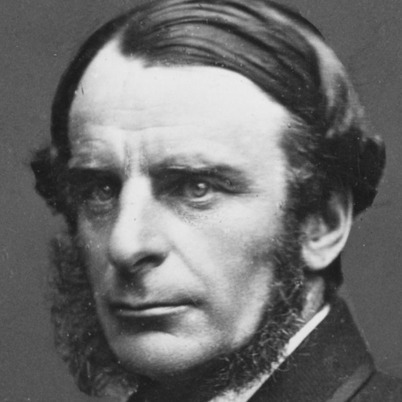 Charles Kingsley (1819-1875)
Charles Kingsley (1819-1875)The following all came about in the combox for Brandon Vogt's excellent article, "How Cardinal Newman Handled the Haters" (11-26-12). A fellow Catholic writer, Paul Priest, made some very critical observations about Newman's famous sarcastic retorts to the charges of fundamental dishonesty leveled at him by the Anglican priest and polemicist, Charles Kingsley. Brandon himself asked me my thoughts in response, and I gave them, complete with several Newman quotations, culled from my research for my Quotable Newman and it's eventual follow-up volume. Paul's words will be in blue.
* * * * *
Newman’s conflict with Charles Kingsley is one of the two historical examples I bring up when I hear the very common and erroneous opinion that one must always turn the other cheek. Not true. It’s not an absolute. The other example is St. Paul’s Socrates-like defense (“apologia”) of himself in the Roman / Jewish courts against untrue accusations (see the latter half of the book of Acts). He even appealed to his Roman citizenship (which eventually saved him from being crucified, like St. Peter). That’s hardly turning the other cheek.
But Blessed John Henry Cardinal Newman defended himself with class and as much charity as could be mustered towards a vile, utterly groundless and irrational, scurrilous personal attack. He had heard it for at least 19 years up to that time (since his conversion), and was totally fed up with it. I know something about the whole process, because I recently compiled a volume of his quotations and read most of his books and many of his letters. He had agonized for years over the lies being spread about him (as any normal human being would have).
The result of his extended counter-reply was that he literally won over the affections of the English people, and this had truly momentous consequences in terms of an acceptance of Catholicism in a country with a record of bitter (and often hateful) anti-Catholicism for the previous 300 years. When high-profile Catholics are attacked, it is never solely about them. It's about the Church: that is always the target: at least in Satan’s strategy that ultimately lies behind all lies, and particularly those against Holy Mother Church and her leaders.
* * *
Sorry Brandon but you’re missing the Victorian English barbs within Bl. JHN’s missive. It spews fury, venom, contempt and condescension via enthymemes and that which is left defiantly unsaid; there is even disdain at the worth of Rev. Kingsley himself; not merely what he wrote.
The use of ‘gentlemen’ is perjorative [i.e. if you were gentlemen you should never have allowed such a comment to be published - so you'd better start acting like gentlemen now!]
The trolls are most definitely being fed – Mr Kingsley is being attacked with vituperation and accused of being an unworthy slanderer and the publisher/editor is being accused of being either gullibly reckless or even complicit with Rev Kingsley’s sentiments.
The ‘politeness’ inferred by a modern reader is very far from complimentary – rather the reverse. JHN hasn’t assumed the best either – rather than it being taken for what it was – as a mocking side-swipe at the ‘Jesuitical’ approach that virtually every Anglican would use as a weapon against a Papist; rather JHN decides to take the term literally and outside of its context – you might not notice it but JHN’s also launching a vicious left-hook at the editors/publishers that their ungentlemanly conduct demands restitution lest they be found guilty by association. The ad hominems in his letter swoop in for the attack like valkyries.
I’m really sorry to rain on your parade, but seriously: Your first proposed ‘contemporary blog-like’ response with its tirade of well-worn insults is actually significantly less ascerbic, vitriolic and ‘below the belt’ than the one Blessed John Henry Newman wrote himself.
It’s a different culture in a different era but everyone reading JHN’s letter would wince – but the letter is redolent of Aneurin Bevan’s comment on Prime Minister Anthony Eden “If the Prime Minister is sincere, and he very well may be; then he is too stupid to be Prime Minister”.
No-one from a spanish background would denounce anyone as a thief even if they knew they were…it would be too socio-culturally demeaning for all involved; instead they would confront the criminal with “I appear to have mislaid my wallet” [which is a euphemism for I know you've taken it - give it back or I'll break you neck!]
Quentin Crisp said of the British “The Americans always say “Oh the British are so polite” without realising that the British are only ever polite to people they can’t stand!” If the British like someone a conversation will be filled with cordial familiarity and jovial put-downs, cynicisms and sarcasms.
Heart may speak unto heart – but there was certainly not an ounce of cordiality in that letter – to those who understand the tone I think the response would be a cringing shock.
. . . you’re being dazzled by the halo and the assumption that words can be interpreted at face value without the locale, the era or the cultural argot and the terminologies utilised being taken into consideration. They can’t.
You’re presuming this is the height of politeness, courtesy, civility and decorum with neither a raised word nor any imputation on another’s reputation; when it reality this is a withering character assassination and the remarks of someone who is incandescently livid and casts insults accordingly!
Take a look at what he REALLY says about Charles Kingsley [and the editor]
“I neither complain of them for their act, nor should I thank them if they reversed it.”
That’s Victorianese for “I don’t give a [expletive deletive] what they do – they’re not worth it – those [expletive deleted] can go [expletive deleted] themselves for all I care. I expect nothing less from [derogatory term] like that of [derogatory term] intellect and [derogatory term] morality – and as for a retraction or an apology it would be of as much worth and contain as much false authenticity and sincerity as the [expletive deleted] they’ve already written/allowed to be written”
..how’s that for an ad hominem?
..this is confirmed by the accusation that they didn’t merely commit grave slander but ‘gratuitous’ slander too.
[thinking the best of them?]
…and the word ‘gentlemen’ [especially in the sign off] is used as a provocative confrontational bludgeon that they are not being deemed gentlemen or considered gentlemen because the evidence suggests they have not acted like gentlemen and should bloody well start to act like gentlemen – if that’s at all possible…
[that can hardly be considered any of the three aspects of your advice]
…he even twists the knife by saying that he doesn’t and would never normally read the publication – the only reason he’s responding is because he was notified…
With the English you have to notice the extraneous, the peripheral and the nuances – hardly anything ever means what it says and a word is hardly ever wasted – if it’s there – it’s there for a purpose and usually has a big motive pushing it – you just need to find it…
We rarely write, say or do anything which isn’t contaminated with a[n] [un]healthy dose of irony or sarcasm. Newman was an exemplar of it.
I doubt if anyone had more ideological adversaries in the world than GKC – but is there one among them who didn’t adore him? Even when he’d slain their heretical dragons and exorcised their fallacious phantoms and was the field marshal of the army whose unending onslaught ravaged everything in which they lived and believed? To Bernard Shaw and HG Wells when GKC died the moon was twice as lonely and the stars were half as bright – they loved him like a brother. Why? Because Gilbert spent his whole life arguing – so much so that he had no time for quarrelling…
Now if we are to love and honour Blessed John Henry Newman for who he was – we have to stop rewriting who he was – he was no plaster saint – no saint ever was..they all [bar one] had their flaws…they had feet of clay because they were picked out of the mud where they were walking…and with Newman it was getting upset over minor slights and actuating generations-long pig-headed recalcitrant feuds over the most ridiculous issues…
He may have been good, kind, holy, overflowing in intellect and wisdom..and although he’s very precious to us now – when he was alive he was ‘precious’ in the wrong way.
He quarrelled, he took offence, he exacted canly, he sent people to Coventry for decades and had no qualms garnering support against the object of his disdain and antipathy so it might turn into a farcical internecine conflict continuing even after he was long dead…he might have been worthily childlike in so many ways but in one way he was childish..he was very sensitive and got hurt very easily…and was hyperbolic in his distress when he did get hurt..which was probably a path to his salvation…by that wound and its healing maybe Christ was able to enter into his life in ways unimaginable if he hadn’t had that sensitive side? Maybe the prayers and hymns and writings and poems wouldn’t have a tenth of their beauty and understanding if he hadn’t borne that cross?
Anyone who has read the Apologia may sympathise with him and his emotional and civic and intellectual struggles – but even the most warm-hearted of us must concede that there are times the blessed future cardinal was a bit of a narcissistic jessie fretting over non-existent anxieties and self-imposed unnecessary imaginary burdens – and despite being really brave there were times when the best thing for him would to have had a father figure giving him a good shake, or throwing a big bucket of ice-water over him or a good kick in the seat of the pants…
…and a mother figure to force him and his opponent to say sorry and shake hands like nice young gentlemen and make up.
Love Blessed John Henry Newman – but please don’t forget that he had his ‘Sheldon Cooper’ side to him too..we can love and forgive and be willing to excuse at any available opportunity..but to deny it is to turn him into marble..and he’s not!
[all bolded emphases added]
* * *
I think his take is sheer nonsense: armchair psychobabble and reading into completely justified, brilliant satirical barbs (things that Jesus and Paul both did; therefore they are not at all intrinsically sinful in every instance), all kinds of nefarious motives that are not there. It’s assuming the worst of someone rather than the best: which the Christian must not do (1 Corinthians 13).
I think Newman was doing a lot of what I often do, myself: taking an opportunity of a topic immediately at hand to launch off into observations about the larger related issue (in this case, a profound cultural anti-Catholicism).
His book Lectures on the Present Position of Catholics in England (1851) contains some of the most delightful sarcasm I have read, anywhere. And it is good not only because it is spot-on and matchless prose (as always with him), but precisely because the subject matter offered such treasure-troves of folly and silliness to draw from.
Likewise, with Kingsley. Newman knew full well what was behind the attack: it was directed against Catholicism in the usual garden-variety way, with allusions to jesuitical casuisty, etc: every timeworn stereotype in the book. And so he was simultaneously dealing with that. We know that, from what he wrote about the exchange. It was an opportunity to slay the beast of cultural anti-Catholicism, using the vehicle of a ridiculous personal attack, handed to him on a silver platter. So, e.g., he wrote in a letter, while putting the Apologia pro vita Sua together:
So far as my character is connected with the fact of my conversion I have wished to do a service to Catholicism, . . . (Letter to Frederick Rogers, 1 May 1864)
Any true contempt was towards the incessant lying and revisionism of English anti-Catholicism: not towards Kingsley per se. He was just a pawn in that larger game. Hence Newman wrote eleven years later:
The death of Mr Kingsley, so premature, shocked me. I never from the first have felt any anger towards him. As I said in the first pages of my Apologia, it is very difficult to be angry with a man one has never seen. A casual reader would think my language denoted anger – but it did not. . . . much less could I feel any resentment against him when he was accidentally the instrument in the good Providence of God, by whom I had an opportunity given me, which otherwise I should not have had of vindicating my character and conduct in my Apologia. (Letter to Sir William Henry Cope, 13 February 1875)
Now, we can take Cardinal Newman’s own report of his interior feelings at face value, or we can rashly speculate and attribute ill will. I try to extend good will to any man. In this case, we have a saintly and rather extraordinary man: all the more reason to accept his own report. Justified sarcasm does not prove ill will or personal derision and detestation.
We also know from his account of writing the “Apologia” that this was a very unpleasant task for him indeed: a state of mind quite contrary to the imaginary fiction that our friend has dreamt up:
In writing I kept bursting into tears—and, as I read it to St. John, I could not get on from beginning to end. (Letter to William John Copeland, 19 April 1864)
. . . the most trying work which I ever had to do for nothing. During the writing and reading of my Part 3, I could not get on from beginning to end for crying . . . (Letter to Frederick Rogers, 22 April 1864)
It has been a great misery to me. (Letter to R. W. Church, 26 April 1864)
I have never been in such stress of brain and such pain of heart, and I have both trials together. Say some good prayers for me. . . . I have been constantly in tears, and constantly crying out in distress. . . . And then the third great trial and anxiety, lest I should not say well what is so important to say. (Letter to James Robert Hope-Scott, 2 May 1864)
. . . I have done a book of 562 pages, all at a heat; but with so much suffering, such profuse crying, . . . (Letter to Sister Mary Gabriel du Boulay, 25 June 1864)
I never had such a time, and once or twice thought I was breaking down. (Letter to Mother Imelda Poole, 25 June 1864)
None of these letters, by the way, are in my current book, The Quotable Newman. It had to be edited down . . . They will be in a Vol. II eventually, filed under a section devoted to his own thoughts about the Apologia.
One line in Paul’s observations is very telltale, I think: “with Newman it was getting upset over minor slights and actuating generations-long pig-headed recalcitrant feuds over the most ridiculous issues…”
That was surely the case at times for Newman, as with any sensitive or thoughtful person who loves God and others. But it is not the case in the dispute with Kingsley. Far from being a “minor” thing or “ridiculous” it was of the highest importance in the history of Catholicism in England and the world (Newman being perhaps the most notable and brilliant convert since St. Augustine).
The subsequent favorable reaction of England proves this as no amount of analysis from anyone could. It was God’s providence for it to happen. Newman, being very spiritually attuned and discerning, thankfully knew that and endured the misery that he did, in defending himself (and really, the Church) against scurrilous lies.
Lastly, as to the juxtaposition of Chesterton to Newman: people react in very different ways to different personas. Who doesn’t (almost instinctively) like the jovial, congenial, always smiling and wisecracking, big cuddly teddy bear Chestertonian type? Who could resist that? But not all men are of that type. It was God’s will that we have different temperaments (and thank heavens for that). Newman may not have been “warm fuzzy” likeable in that vein, but he was no less deeply admired and loved by virtually all who knew him: including many thousands of Protestants in his last 26 years of life. I collected some personal impressions from several people on a Photograph and Portrait Page.
Chesterton was also bitingly satirical, especially about atheists and intellectuals: make no mistake about it. Again, I know a little about that, having compiled a book of his quotations, too! Here is one of my very favorites (I have it on my Facebook profile page):
And those who have been there will know what I mean when I say that, while there are stupid people everywhere, there is a particular minute and microcephalous idiocy which is only found in an intelligentsia. (Illustrated London News, “The Defense of the Unconventional,” 10-17-25)
Or how about this delightful tidbit:
I have frequently visited such societies, in the capacity of a common or normal fool, and I have almost always found there a few fools who were more foolish than I had imagined to be possible to man born of woman; people who had hardly enough brains to be called half-witted.
(The Thing: Why I am a Catholic, 1929, ch. 6)
Now, in person (utilizing his charm), Chesterton probably could get away with such withering, acerbic comments, but if one merely reads them (especially without knowing who wrote them), they are every bit as “negative” and as difficult to be a recipient of, as Newman’s barbs. Therefore, in terms of sarcasm considered in and of itself, apart from personality, I see little difference, if any, between the two men.
I agree that Paul is a dazzling writer. Would that he concentrated his rare gift on more defensible and edifying subject matter.
***
I would add that, at least in his initial response (cited in the article) there is liberal use of socratic irony, or tongue-in-cheek understatement:
This can be done entirely without anger (as usually in Socrates himself) The task at hand is how to interpret Newman’s sarcasm and irony, as to motive? Why did Newman do it? It seems to me that there is definitely more than one way to look at this.
We can assume that every use of the irony is born of a seething resentment and proof positive of (some or all of Paul’s many colorful terms: take your pick) fury, venom, contempt, condescension, disdain, vituperation, ad hominem, vitriol, or being “incandescently livid” (all of which emotions starkly contradict Newman’s own report of his state of mind).
Or we can conclude (with much more charity) that, yes, Newman had contempt for the lies being told (that happened to be at his expense, but could have been directed to any one of a thousand Catholics), but not for the person telling them.
Like I said, sarcasm alone — even biting, acerbic sarcasm — is not at all a proof of all these descriptions being applicable in Newman’s case, let alone of actual sin (since Jesus could call Pharisees “vipers” and “whitewashed tombs” while not sinning). It’s perfectly possible for a person to truly “hate the sin and not the sinner” as most Christians learn at some point in their spiritual odyssey. Jesus turned over the tables of the moneychangers; He didn’t smack them (though He had very choice words for them, calling them “thieves” or “robbers”): again without sin.
I did a similar thing last night, in writing an Introduction to my upcoming book on Catholic so-called “traditionalism”, stating with regard to theological liberalism:
I detest these false notions; have nothing but intellectual contempt for them (while trying to love the persons, as I should).
This is rather elementary Christian ethics. Why is it that it is not assumed that Cardinal Newman’s “fury, venom,” etc. (insofar as it did exist), was simply directed towards the lies about Catholicism that were ubiquitous in England: pointedly expressed by Kingsley at his expense, rather than at Kingsley himself? Why is it that the conclusion is so quickly (easily?) drawn that it all stems from personal derision?
I don’t think this follows at all, and I know for a fact that it certainly doesn’t necessarily follow, because I do this sort of thing all the time, myself, as an apologist: i.e., have a seething contempt for some falsehood and the harm that it causes, while (many times, but not always, being human) not being “opposed” to or wishing ill to persons ultimately victimized by and pawns of same, in the slightest. I did it last night in a lengthy, “controversial” exchange with several people. It’s part and parcel of apologetics, and in fact, if we apologists didn’t have such contempt for falsehood, we wouldn’t be nearly as motivated as we are to oppose and refute it. It’s good energy to go out and do constructive things with.
The motive is, or should be love. Life is too short for petty personal squabbles. I don’t believe for a second that this was Newman’s motivation regarding Kingsley. I take him at his word. And that remains true as the most plausible explanation, in my opinion, from the relevant personal and circumstantial evidence, regardless of what view one takes on the notorious “Newman’s [real or alleged] hypersensitivity” mantra, which Paul trots out.
From my own extensive biographical research in compiling my quotations book, I personally think this larger charge is a bum rap, while not denying that Cardinal Newman was a sensitive person (most of the deepest thinkers and saintly people are) or asserting that he was perfect. I deny that oversensitivity or hypersensitivity is accurately applied to Newman as a leading character trait or flaw. This is the issue: it’s a matter of degree and whether it was a sort of besetting sin for him.
I think, again, that my own personal experience gives me a small amount of insight on the matter (and personalism of this sort was a big emphasis in Newman’s thought, as also in, e.g., Blessed Pope John Paul II’s). I have been accused many times in my apologetic endeavors (usually by anti-Catholics, as Kingsley was) of being “angry” or “sensitive” or some other emotional state that I knew was not true to the slightest extent in the given situation I was in (just last night, in fact, I was called a “crybaby” by a semi-sedevacantist, before he stalked off and blocked me). These things were applied to me, based on words I had written, but (in most cases) were untrue. They came either from an illogical or ill-formed conclusion drawn, or from projection of other people’s temperament onto my own (rather cool and easy-going, while being very passionate about ideas and truth).
Why can it not be that Newman was simply passionate about principle and fact and truth, without this charge of personal pique being thrown at him? I deny that the evidence of his life and actions proves indubitably that the man was oversensitive. I could be wrong, of course (I don’t claim to be an expert on him: I simply collected his quotations), but I’m just giving my own opinion on that and the reasons why I hold it.
* * * * *
Published on November 27, 2012 13:56
November 19, 2012
BUY ANY FIVE of My Lulu Books: 5 e-Pubs for Only $14.95! or 5 PDFs for Only $7.95! 47-57% Savings Off of Regular Pricing

[See also my Main Books Page, with links to all 34 of my books: contents, excerpts, instant purchase info., etc.]
This brand-new opportunity to save money on book purchases offers you the flexibility and freedom to choose any five of my 25 Lulu books (i.e., the ones shown below; not absolutely all of my books) at a bargain price:
$14.95 for five ePubs ($2.99 each)$7.95 for five PDFs ($1.59 each)
This represents a 57% and 47% savings, respectively, compared to individual pricing (already very low to begin with, compared to average e-book prices). All you do is send the money directly to me through PayPal (in order to have the freedom to choose whatever books you want): to my email address:
apologistdave@gmail.com
It's not an automated download (I need to manually send the books to you). If you haven't used PayPal before, it is very user-friendly.
You can leave a little note in PayPal with the name of your book selections, or else send a separate email if you prefer, with "5 BOOKS" in the title, in order to alert me to the fact that it is a package deal transaction. I will know whether ePubs or PDFs are to be sent by the amount of the transaction. I will need the exact e-mail address where you want me to send the books, of course. I have made a three-letter code for each book that you can use to save writing, if you like.
If you'd like to pay by personal check instead, write me at the above address and we'll make arrangements.
If you have any questions about the deal at all, feel free to write to me, and I'll be happy to assist you.
All volumes below have individual book pages, with Tables of Contents, Introductions, excerpts, large photos of front and back covers, and sometimes reviews. Click on any book icon or written title to access these info-pages.
MOBILE DEVICE CONVERSIONS AND RELATED INFO.
[go to the bottom of the paper for much information about compatibility, transfers, etc.]

Specific Theological Topics
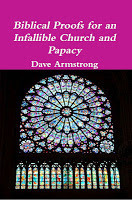 Biblical Proofs for an Infallible Church and Papacy
("ICP" 2012, 150p)
Biblical Proofs for an Infallible Church and Papacy
("ICP" 2012, 150p)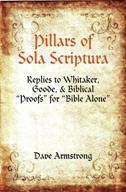 Pillars of Sola Scriptura: Replies to Whitaker, Goode, & Biblical "Proofs" for "Bible Alone" ("PSS" 2012, 310p)
Pillars of Sola Scriptura: Replies to Whitaker, Goode, & Biblical "Proofs" for "Bible Alone" ("PSS" 2012, 310p)  Theology of God: Biblical, Chalcedonian Trinitarianism and Christology
("GOD" 2012, 156p)
Theology of God: Biblical, Chalcedonian Trinitarianism and Christology
("GOD" 2012, 156p)  Biblical Evidence for the Communion of Saints
("COS" 2012, 152p)
Biblical Evidence for the Communion of Saints
("COS" 2012, 152p) 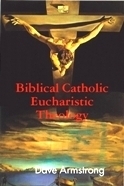 Biblical Catholic Eucharistic Theology
("BCE" 2011, 222p)
Biblical Catholic Eucharistic Theology
("BCE" 2011, 222p)
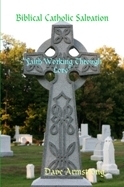 Biblical Catholic Salvation: “Faith Working Through Love”
("BCS" 2010, 187p)
Biblical Catholic Salvation: “Faith Working Through Love”
("BCS" 2010, 187p)  "The Catholic Mary": Quite Contrary to the Bible?
("MAR" 2010, 193p)
"The Catholic Mary": Quite Contrary to the Bible?
("MAR" 2010, 193p) 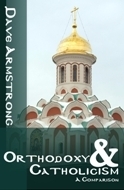 Orthodoxy and Catholicism: A Comparison
("ORT" 2004, 232p)
Orthodoxy and Catholicism: A Comparison
("ORT" 2004, 232p) 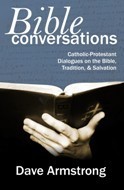 Bible Conversations: Catholic-Protestant Dialogues on the Bible, Tradition, and Salvation
("CON" 2002, 218p)
Bible Conversations: Catholic-Protestant Dialogues on the Bible, Tradition, and Salvation
("CON" 2002, 218p)  Development of Catholic Doctrine: Evolution, Revolution, or an Organic Process?
("DEV" 2002, 198p)
Development of Catholic Doctrine: Evolution, Revolution, or an Organic Process?
("DEV" 2002, 198p) 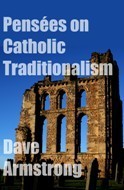 Pensées on Catholic Traditionalism
("PEN" 2002, 170p)
Pensées on Catholic Traditionalism
("PEN" 2002, 170p) 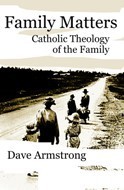 Family Matters: Catholic Theology of the Family
("FAM" 2002, 159p)
Family Matters: Catholic Theology of the Family
("FAM" 2002, 159p)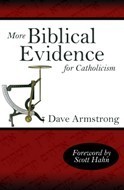 More Biblical Evidence for Catholicism ("MBE" 2002 181p)
More Biblical Evidence for Catholicism ("MBE" 2002 181p) Collections of Quotations / "Readers"
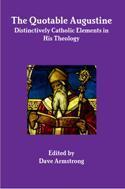 The Quotable Augustine: Distinctively Catholic Elements in His Theology
("AUG" 2012, 245p)
The Quotable Augustine: Distinctively Catholic Elements in His Theology
("AUG" 2012, 245p) 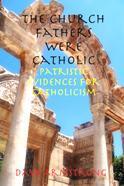 The Church Fathers Were Catholic: Patristic Evidences for Catholicism
("CFC" 2007, 360p)
The Church Fathers Were Catholic: Patristic Evidences for Catholicism
("CFC" 2007, 360p)  Classic Catholic Biblical Apologetics: 1525-1925 ("CCA" 2012, 246p)
Classic Catholic Biblical Apologetics: 1525-1925 ("CCA" 2012, 246p) Protestantism
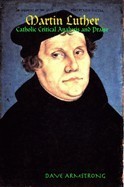 Martin Luther: Catholic Critical Analysis and Praise
("LUT" 2008, 264p)
Martin Luther: Catholic Critical Analysis and Praise
("LUT" 2008, 264p)  Biblical Catholic Answers for John Calvin
("CAL" 2010, 388p)
Biblical Catholic Answers for John Calvin
("CAL" 2010, 388p) 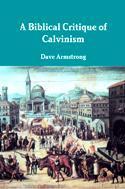 A Biblical Critique of Calvinism
("BCC" 2012, 178p)
A Biblical Critique of Calvinism
("BCC" 2012, 178p) 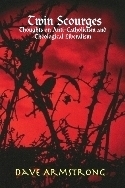 Twin Scourges: Thoughts on Anti-Catholicism & Theological Liberalism
("TWI" 2003, 167p)
Twin Scourges: Thoughts on Anti-Catholicism & Theological Liberalism
("TWI" 2003, 167p) 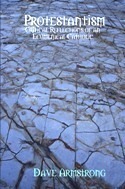 Protestantism: Critical Reflections of an Ecumenical Catholic
("PRO" 2003, 188p)
Protestantism: Critical Reflections of an Ecumenical Catholic
("PRO" 2003, 188p)General Christian Apologetics / Atheists and Agnostics [For General Readers; Contain No Distinctively Catholic Material]
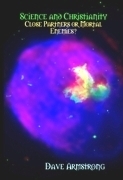 Science and Christianity: Close Partners or Mortal Enemies? ("S&C" 2010, 301p)
Science and Christianity: Close Partners or Mortal Enemies? ("S&C" 2010, 301p) 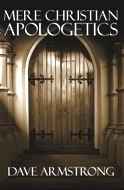 Mere Christian Apologetics ("MCA" 2002, 289p)
Mere Christian Apologetics ("MCA" 2002, 289p) 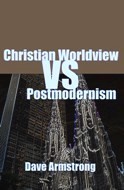 Christian Worldview vs. Postmodernism ("CWP" 2002, 218p)
Christian Worldview vs. Postmodernism ("CWP" 2002, 218p) Music
 Beatles, Motown, Beach Boys, Etc.: Classic Rock Discographies, Commentary, and Mono vs. Stereo Analysis
("BMB" 2012, 213p)
Beatles, Motown, Beach Boys, Etc.: Classic Rock Discographies, Commentary, and Mono vs. Stereo Analysis
("BMB" 2012, 213p) MOBILE DEVICE CONVERSIONS AND RELATED INFO.
ePub files are able to be read on virtually all mobile, hand-held devices, such as iPod, iPad, iPhone, BlackBerry, Sony Readers, Barnes and Noble Nook, Bookeen, Cybook Opus, Mobi, Kobo E-Reader, Android devices, and Amazon Kindle (with an easy file conversion). All of my ePubs are DRM-protected, however, and it is generally thought that only non-protected ePubs can be read on Kindle. But there is a way (at least on Kindle Fire), to read DRM-protected ePubs, too (link two / link three). In any event, all of my PDFs can be read on Kindle, for sure.
Amazon Kindle books can be read on other devices, with the aid of various apps. You may have to install the free program Adobe Digital Editions. The free Bluefire Reader app allows one to read DRM ePubs on iPod, iPad, iPhone, and Androids (see detailed guide / guide #2). Several of my titles are sold at iTunes (listed below). See a more general guide for mobile e-book reading. Firefox users can get the EPUB Reader Add-on. The e-Book Converter site is very helpful. See also additional instructions for Sophia Institute Press e-Books: compatible with Kindle, Nook, etc.

Updated on 19 November 2012.
***
Published on November 19, 2012 14:00
November 16, 2012
Reply to Misrepresentations of My Opinions (Liturgical and Otherwise) by a Radtrad
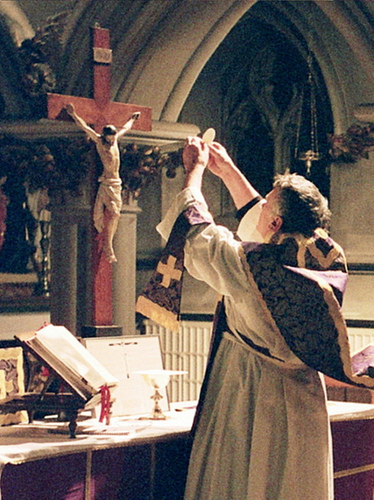
This came about as a result of a friend cross-posting on Facebook my lengthy paper, Apologia For the Mass of Pope Paul VI, With Massive Historical Documentation From Catholic Tradition / Summary of Vatican II on Liturgical Reform. In the resulting thread, a "radtrad" (i.e., a "traditionalist" who is close to being a schismatic) started uttering falsehoods about my opinions (he later removed his comments, without retraction). Sadly, his behavior represents a typical tactic of radtrads, when confronted with their errors.
His words will be in blue below. I will inform him of this paper, and he will have the chance to retract his accusations and apologize for the mistake, if he feels so led. It's never a good thing to bear false witness against anyone else: especially fellow brothers in Christ. I added some additional comments presently.
The person wrote back to me (after I initially posted this, and informed him), and asked that his name be removed, as an act of charity. I was happy to comply, and wrote back:
Now, as an act of charity, consider retracting your falsehoods! It's your soul. I'm not harmed by it, because I simply refute it.
He then expressed a desire that I not contact him again (I regard it as a courtesy to inform someone that they have been responded to: one I rarely receive myself, from my critics). I was gonna say in return that my wish was that he not misrepresent me again, either. But alas, I was blocked, and could not even write that back. All par for the course: when refuted with regard to falsehoods uttered about someone else, high-tail it for the hills, with further insults.
To crown his hypocrisy, on his personal blog, in November 2012, he was complaining about some other controversy in another venue, and how they shut down their comments because of disagreements expressed, and described this behavior as "liberal-fascist"; then stated triumphantly that his own combox remained available for comment.
In another post from July 2012, our heroic, consistency-challenged critic was complaining about being a target of slander and calumny and noted that his accusers didn't like it that he was trying to clear himself against "lies." He then goes on to bloviate about how the accusers were nicely asked to apologize and retract, and how they refused; and he also complains about how the SSPX is being criticized.
Sounds like a classic case of "log-in-the-eye disease" to me . . . When the shoe's on his foot, this guy acts in exactly the same fashion that he criticizes in others.
* * * * *
While the article is long and has many quotes, it misses the mark. What I find disturbing is that this writer, continues in a this or that, old or new, one is better than the other mentality.
Really? Where did I state that one was better than the other? My position is that of the pope: let people worship as they please. I advocated free access to the EF [extraordinary form, or Tridentine Latin Mass] even before the pope granted it (live and let live): which is why I attend one of two parishes in metro Detroit that offers the EF. I have attended them. They're great. Personally, I prefer the Novus Ordo Latin Mass. That's not saying one is "better" than the other. That is the juvenile radtrad game, not mine.
I am searching my paper and can't find the words "better" or "best" or "superior" ever used in the sense I was just accused of using. I did use "prefer" one time:
At my parish (just for the record) we all kneel at the altar rail to receive Holy Communion, and I prefer that, but I can't argue that it is an absolute and that standing necessarily tends towards irreverence.
My consistent opinions on this have been made very clear on my blog (that has almost 2,500 posts and is fully searchable). For example, in a paper devoted to the Tridentine Mass (EF), dated 4 June 2008, I wrote, in four different excerpts:
I have not the slightest objection to someone preferring the Tridentine Mass. My own parish offers it.
I've always favored a wide availability of the Tridentine Mass. I've gone to a very reverent and traditional Novus Ordo Mass at my parish for 17 years. . . . I recognize that there are many who simply prefer the Tridentine Mass. AND I HAVE NO PROBLEM WITH THAT WHATSOEVER. [caps in original]
. . . my position is precisely that of Pope Benedict XVI: both forms of the Mass are important and ought to be preserved. It's not just a matter of taste, anymore than preference of various folks for the various 22 or so rites in the Catholic Church is merely a matter of taste. The faithful have a rite to worship (deliberate pun) as they are allowed in the Church. The TLM should never have been so limited in availability. The Church has recognized that now. I always thought in this way. Vatican II said the Latin should always be preserved. 99% of parishes forgot that but mine did not, which is precisely why I am there (among many other reasons).
The Pope has spoken definitively; the Church has spoken (there are two forms of the Romans Rite -- ordinary and extraordinary -- that should be and shall be continued in the Church), but "traditionalists" continue to feel that they know better than both.
He has previously slandered the memory of Michael Davies actually accusing him of being a sedevantist.
Is that so? Oh, by the way, the proper term is "sedevacantist" -- meaning, "the seat is vacant" in Latin.
You have a very active imagination, causing you to come up with all sorts of rubbish (at least when it comes to my opinions). Wouldn't it be nice if you actually attempted to document your ridiculous accusations? I know it's a novelty, but I highly recommend it in the future, to save yourself a lot of misery, lest you look like a fool (as you do now).
I don't recall ever having said such a thing. I searched my site and could find nothing remotely resembling it. In fact, I see that when I bring up Davies, it is almost always to oppose him to radtrads: on indefectibility, against the Remnant, in favor of Blessed Pope John Paul II, etc. I have one paper of links that oppose sedevacantism, and a paper by Davies is included (!!!). Yet you claim that I place him in that category?
He has a pretty blog, no doubt; but he provides little depth as to the zeitgeist of last 75 years in liturgy. . . . The writer has more than once displayed his bias against the EF and that removes his credibility.
This is sheer nonsense; hogwash. I have no such bias at all, and you can't find it in the paper. Apparently, in your weird conception of logic you mix up the following two notions, in your "understanding" of my paper:
1) The OF [ordinary form, or Novus Ordo / Pauline / New Mass] is defended as acceptable and quite sufficiently traditional (with massive documentation) and compared to the EF in this light, in the face of radtrad attacks on its supposed "objective inferiority," or (Voris' ludicrous charge), "inauthentic" nature.
2) Because the OF is defended and favorably compared to the EF, as quite sufficiently traditional (with massive documentation); therefore, the OF is objectively superior to the EF.
Far as I can tell, you erroneously think I have advocated #2 in my paper, when in fact I have done no such thing. I have advocated #1, and my position is that both are perfectly acceptable, pious, worthy, wonderful forms of Catholic worship, per the pope's clear explanation in 2007, and its accompanying letter to the bishops. Isn't it wonderful and wonderfully liberating to simply agree with the wisdom and guidance of the Holy Father?
He is not a liturgical scholar.
Now, for once you get something right, but it is irrelevant to my purpose. Precisely because I am not such a scholar, I cite many folks who are, or who have high positions in the Church (e.g., popes). The bottom line is: does the contention of the paper stand, based on the arguments and documentation presented? Whether I am a "scholar" or not is a complete non sequitur . I'm a popular-level apologist and have never made any pretense of being anything else, ever. This is just an evasive tactic, to avoid dealing with my argument" the same tomfoolery that happened when I took on [Michael] Voris: people would do anything under the sun except deal with the actual argument! We're in an age of profound irrationality and inability to dialogue in any meaningful sense.
This paper (Apologia for the Mass of Pope Paul VI), was a project where I was basically learning as I went along. I was exploring, out of curiosity, and in response to all the radtrad, quasi-schismatic attacks on the Novus Ordo. What I found was wonderfully edifying, and I was happy to share it with others. It shows yet again that the Church knew what she was doing. When will (certain) folks accept that? They lack faith, to question the wisdom of Holy Mother Church so much.
The radtrads always bring it back to men, rather than God and the Mind of the Church and the popes. Men did this; men did that; men hijacked the council; men ran a conspiracy to wreck the Church. It's all doom and gloom, "crying in your beer" hogwash. Where is the faith? Where is the eternal optimism and hope and trust in God and belief that the Church is specially guided and protected by the Holy Spirit that characterizes a Catholic? They're nattering nabobs of negativism (to borrow a famous phrase from Spiro Agnew) . . .
This is what I call the "quasi-defectibility" outlook of the radtrads. They won't assert defectibility of the Church, but they will come right up as close to it as they can: typical of their games and their mentality. They do this with everything: the New Mass, Vatican II, ecumenism, their prejudice against converts and what they derisively call "neo-Catholics" or "Novus Ordo Catholics" or other similar terms . . .
* * * * *
Published on November 16, 2012 21:01
Michael Voris' Denigration of the Ordinary Form of the Mass vs. Pope Benedict XVI's 2007 Decrees
The above video is Weapons of Mass Destruction, Pt. 1., by Michael Voris. Excerpts follow, with his words in blue.
29:10 "In the meantime a New Mass is being engineered that almost totally downplays all Catholic worship in favor of a Protestant-friendly approach. This was what was going on in the Church in Rome."
As is typical in many Catholic "traditionalist" circles (I have noted this many times), after making this objectionable statement, Voris then goes on to repeatedly stress that he thinks the New Mass is "valid." Yes, fine; well and good, as far as it goes. But the above is an atrocious indictment of the worship in the ordinary form of the Roman Rite Mass. It bears false witness. Then he states:
30:07-30:43 "We're not talking about the validity. We're talking about: is this authentic Catholic worship? Is this how Catholics worship God? Is this a break from the past, that's so violent, that you can't really say this is authentic Catholic worship, as we have understood it? Has the theology behind the Mass been so manipulated and twisted and deformed, that Catholics going to this Mass miss something of the theology, compared to talking about the traditional Latin Mass: the Tridentine Mass? That's what's at issue: not, 'is it valid or not?'"
This, of course, profoundly contradicts what the Church teaches: which is that the Novus Ordo is in continuity with past worship traditions; not a break from it. It's a development, not a radical corruption. After stating about the Holy Eucharist (Novus Ordo), "it is Jesus," Voris goes on to pontificate:
31:33 "Is the sacrament valid? Yes. Has your faith been damaged, on the other hand? Yes. . . . We're talking about, is this authentic Catholic worship; is what's going on behind the scenes a possible detriment to your faith? That's the question! . . . is this a danger? What's going on?"
This is a rather interesting scenario (to put it very mildly). The Catholic worshiper at a Novus Ordo Mass has just gone up to receive Jesus Himself in the Eucharist, yet somehow simultaneously this is not "authentic Catholic worship" and the same person's faith has "been damaged" -- and the entire surrounding (with nefarious "behind the scenes" shenanigans) is a "possible detriment" to his or her faith? This is as convoluted as it is outrageous. If Jesus is truly, substantially present and has been received by us, what in the world is "un-Catholic" about that? What is lacking?
I guess Voris thinks there are things more important than the Lord of the universe physically coming to us and becoming one with us in Holy Communion. Talk about messed-up priorities! Like the Pharisees of old, he is hung up on particular formulas and wording (that are fully, wholly accepted by Holy Mother Church), and in so doing misses the very essence of the whole thing: just like the Pharisees, about whom Jesus said: "you tithe mint and dill and cummin, and have neglected the weightier matters of the law, justice and mercy and faith" (Matthew 23:23) and "You blind guides, straining out a gnat and swallowing a camel!" (Matthew 23:24).
34:21 "In short, the prayer, the public worship of the New Mass; the question is: is it more Protestant or more Catholic? That is a very, very key question."
Voris then presents dire observations about the decline in Catholic vocations and participation (attendance at Mass, etc.). But this all begs the question, of course, and is a classic, textbook example of the fallacy of post hoc ergo propter hoc ("after this, therefore because of this"): as if nothing except the New Mass has caused all these problems. Never mind rampant secularism, the sexual revolution, leftist political nonsense, bad catechesis, declining sexual mores of the general populace, increasingly broken homes, the removal of religion and God from public schools, and a host of other anti-traditional cultural trends.
All is traced to a change in liturgy: so Voris' thinks (presupposes in his presentation), with lousy logic and far less wisdom and insight. Other "traditionalists" want to make Vatican II the boogie man for every ill in the Church and society, too. It sort of plays the role for many of a "traditionalist" mindset, that President George W. Bush plays in the politically liberal mind and mentality: the cause of every ill in the history of the universe. He concludes with a statement (entirely presupposing the post hoc ergo propter hoc fallacy) that is presented as a self-evident truth that no one could possibly object to:
39:51 "The faith has been eviscerated in these forty years, and the decline has coincided with the New Mass. How you pray, is how you live, is how you believe."
50:21 "The New Mass stresses the nourishment and the sanctification of the faithful. Old Mass: worship and adoration to the Holy Trinity, the removal of sin. Here?: 'hey, we're all nourished and gettin' along together!' Two entirely different structures here. . . . The language used in the New Mass confuses nearly every aspect of the Mass: the idea of sacrifice; who's actually offering the sacrifice . . . with all of these confusions, the very nature of the faith itself is undermined. . . . the former theology is largely dismissed. . . . The question is, what is it substituted with? When that old theology, the Catholic theology is gone, something else is brought in. What is the something else?"
In high contrast to this patent nonsense, the apostolic letter of Pope Benedict XVI (Voris cites him many times in his presentation), Summorum Pontificum (7 July 2007) stated:
. . . the Second Vatican Council expressed the desire that with due respect and reverence for divine worship it be restored and adapted to the needs of our age. Prompted by this desire, our Predecessor the Supreme Pontiff Paul VI in 1970 approved for the Latin Church liturgical books restored and partly renewed, and that throughout the world translated into many vernacular languages, have been welcomed by the Bishops and by the priests and faithful. . . .
Art. 1. The Roman Missal promulgated by Paul VI is to be regarded as the ordinary expression of the law of prayer (lex orandi) of the Catholic Church of Latin Rite, while the Roman Missal promulgated by St Pius V and published again by Blessed John XXIII as the extraordinary expression of the law of prayer (lex orandi) and on account of its venerable and ancient use let it enjoy due honor. These two expressions of the law of prayer (lex orandi) of the Church in no way lead to a division in the law of prayer (lex orandi) of the Church, for they are two uses of the one Roman Rite.
In his letter to the bishops on the same day, on the same topic, the Holy Father elaborates:
. . . it must first be said that the Missal published by Paul VI and then republished in two subsequent editions by John Paul II, obviously is and continues to be the normal Form – the Forma ordinaria – of the Eucharistic Liturgy. The last version of the Missale Romanum prior to the Council, which was published with the authority of Pope John XXIII in 1962 and used during the Council, will now be able to be used as a Forma extraordinaria of the liturgical celebration. It is not appropriate to speak of these two versions of the Roman Missal as if they were “two Rites”. Rather, it is a matter of a twofold use of one and the same rite.
. . . in many places celebrations were not faithful to the prescriptions of the new Missal, but the latter actually was understood as authorizing or even requiring creativity, which frequently led to deformations of the liturgy which were hard to bear. I am speaking from experience, since I too lived through that period with all its hopes and its confusion. And I have seen how arbitrary deformations of the liturgy caused deep pain to individuals totally rooted in the faith of the Church.
[in other words, the pope is careful to distinguish corruptions and abuses ("arbitrary deformations") of the New Mass from the Mass itself, as promulgated by the Church, in a way that Voris does not do at all. For Voris, it is intrinsically corrupt and inauthentic. For Pope Benedict XVI it is as legitimate as the older Tridentine Mass]
. . . the two Forms of the usage of the Roman Rite can be mutually enriching . . .
The most sure guarantee that the Missal of Paul VI can unite parish communities and be loved by them consists in its being celebrated with great reverence in harmony with the liturgical directives. This will bring out the spiritual richness and the theological depth of this Missal.. . .
[again, it is disharmony with "liturgical directives" that is a problem, not the New Mass itself]
There is no contradiction between the two editions of the Roman Missal. In the history of the liturgy there is growth and progress, but no rupture. What earlier generations held as sacred, remains sacred and great for us too, and it cannot be all of a sudden entirely forbidden or even considered harmful. It behooves all of us to preserve the riches which have developed in the Church’s faith and prayer, and to give them their proper place. Needless to say, in order to experience full communion, the priests of the communities adhering to the former usage cannot, as a matter of principle, exclude celebrating according to the new books. The total exclusion of the new rite would not in fact be consistent with the recognition of its value and holiness.
We see nothing here of the stark contrast that Voris draws between the two forms of Mass. In fact, the pope decreed that they are "two uses of the one Roman Rite" (extraordinary and ordinary). What Voris separates into wonderful and traditional vs. something that is not "authentic Catholic worship" and "more Protestant" than Catholic: to the extent that the two forms of worship are "two entirely different structures," the Holy Father regards as "two expressions of the law of prayer (lex orandi) of the Church." The pope refers to the "spiritual richness" and "theological depth" and "holiness" of the New Mass. Voris, on the other hand, thinks (rather Luther-or Calvin-like) that the theology it exhibits is "manipulated and twisted and deformed."
Two vastly different and utterly irreconcilable opinions indeed . . . Now whom shall the faithful Catholic believe?: the pope or a vociferous commentator who appears to casually assume that he knows far better than the Holy Father and Holy Mother Church in her judgments? Is it Pope Benedict XVI who is our leader and guide, or Pope Michael XVI?
I mentioned above that Voris cited Pope Benedict often during his presentation in this video (and frequently from his many pre-papal writings). But he distorts the pope's beliefs by hyper-selective quotation, and doesn't present its full scope. Dr. Jeff Mirus critiques a very similar attitude and modus operandi among other "traditionalists":
In recent weeks, several severe critics, opponents and denigrators of the Ordinary Form of the Roman Rite have claimed that they are simply following the lead of Pope Benedict XVI when he was a cardinal, and they have cited one or more writings of Joseph Ratzinger in which he expressed criticisms of certain aspects of the implementation of the new rite. I want to emphasize that he expressed these concerns in scholarly work, and that, taken in context, it is always clear that Ratzinger as a cardinal was not ill-disposed toward the Novus Ordo. Rather, he was interested in improvements which might be made (no liturgy is perfect) and, in particular, he was opposed to the free-wheeling manner in which some ignored the rubrics when saying Mass, . . .
First, it is absolutely critical to note that the mind of the Church or even of the Pope himself cannot be determined by looking at the writings of a future pope before he became pope. A cardinal’s election as pope does not in any way validate his earlier remarks, none of which were protected in the least by the grace of his later office. . . .
So even if some of Cardinal Ratzinger's remarks seem very negative in isolation from his entire body of work—or indeed even if it were possible to argue that his whole outlook on the Novus Ordo was negative (which was not the case)—this would tell us nothing about the mind of the Church. No, to learn the mind of the Pope (and therefore something of the mind of the Church) on such matters as the liturgy, we need to look to what the Pope has said while in office.
Second, while in office, Pope Benedict XVI has made his approval of the Novus Ordo clear. He has also made clear that his serious criticisms do not apply to the rite itself but to the false interpretation of the Missal of Paul VI as something that requires constant experimentation and innovation, as if priests are to superimpose their own improvisations on the official liturgy and, in so doing, frequently substitute the banal for the sublime. . . .
My advice to those who seriously dislike the Novus Ordo is this: Admit your personal preference for the Extraordinary Form if you like; true Catholics should not criticize you for it, even if they prefer the Ordinary Form. Combat abuses of the Novus Ordo where you can; the Church will thank you for that. But do not denigrate the rite itself, as if it is something unworthy or profane, and never imply that the billion Catholics who use and have come to love it are somehow inferior in their Faith.
("The Mind of the Church on the Novus Ordo," Catholic Culture, 13 August 2010)
Precisely. We saw the same approach above in his decrees of 2007 regarding the renewed and encouraged use of the Tridentine Mass: concentration on corruptions of a good thing, rather than a thing (the New Mass) itself intrinsically corrupt (as in Voris' erroneous view).
Further related reading:
Facebook thread on Michael Voris (11-15-12)
Second Facebook discussion thread, in response to this paper (11-17-12)
Apologia For the Mass of Pope Paul VI, With Massive Historical Documentation from Catholic Tradition / Summary of Vatican II on Liturgical Reform
Counter-"Traditionalist" Argument From Liturgical Development: Method of Receiving Holy Communion (vs. David Palm)
St. Augustine's Distribution of the Eucharist Like Our Present-Day Usual Practice [Facebook]
Thoughts on Communion in the Hand
Liturgical Abuses at Mass: How Much Should We Endure and What Should We Do About It? (with David W. Emery)
Revised somewhat and re-titled on 24 December 2012.
* * * * *
Published on November 16, 2012 19:31
Michael Voris' "Verbal Destruction" of the New Mass: Case Study of Abominable Radtrad Falsehoods and Rejection of the Mind of the Church
The above video is Weapons of Mass Destruction, Pt. 1., by Michael Voris. Excerpts follow, with his words in blue.
29:10 "In the meantime a New Mass is being engineered that almost totally downplays all Catholic worship in favor of a Protestant-friendly approach. This was what was going on in the Church in Rome."
Like a typical quasi-schismatic "traditionalist" (I have noted this many times), after making this abominable statement, Voris then goes on to repeatedly stress that he thinks the New Mass is "valid." Yes, fine; well and good, as far as it goes. But the above is slanderous and an atrocious indictment of all who attend Novus Ordo worship (which is the vast majority of the Church). It's a lie; it bears false witness. And that is a sin. Then he states:
30:07-30:43 "We're not talking about the validity. We're talking about: is this authentic Catholic worship? Is this how Catholics worship God? Is this a break from the past, that's so violent, that you can't really say this is authentic Catholic worship, as we have understood it? Has the theology behind the Mass been so manipulated and twisted and deformed, that Catholics going to this Mass miss something of the theology, compared to talking about the traditional Latin Mass: the Tridentine Mass? That's what's at issue: not, 'is it valid or not?'"
This, of course, profoundly contradicts what the Church teaches: which is that the Novus Ordo is in continuity with past worship traditions; not a break from it. It's a development, not a radical corruption. After stating about the Holy Eucharist (Novus Ordo), "it is Jesus," Voris goes on to pontificate:
31:33 "Is the sacrament valid? Yes. Has your faith been damaged, on the other hand? Yes. . . . We're talking about, is this authentic Catholic worship; is what's going on behind the scenes a possible detriment to your faith? That's the question! . . . is this a danger? What's going on?"
This is a rather interesting scenario (to put it very mildly). The Catholic worshiper at a Novus Ordo Mass has just gone up to receive Jesus Himself in the Eucharist, yet somehow (in Voris' fertile quasi-schismatic mind) simultaneously this is not "authentic Catholic worship" and the same person's faith has "been damaged" -- and the entire surrounding (with nefarious "behind the scenes" shenanigans) is a "possible detriment" to his or her faith. This is as ridiculous and convoluted as it is outrageous. If Jesus is truly, substantially present and has been received by us, what in the world is "un-Catholic" about that? What is lacking?
I guess Voris thinks there are things more important than the Lord of the universe physically coming to us and becoming one with us in Holy Communion. Talk about messed-up priorities! Like the Pharisees of old, he is hung up on particular formulas and wording (that are fully, wholly accepted by Holy Mother Church), and in so doing misses the very essence of the whole thing: just like the Pharisees, about whom Jesus said: "you tithe mint and dill and cummin, and have neglected the weightier matters of the law, justice and mercy and faith" (Matthew 23:23) and "You blind guides, straining out a gnat and swallowing a camel!" (Matthew 23:24).
34:21 "In short, the prayer, the public worship of the New Mass; the question is: is it more Protestant or more Catholic? That is a very, very key question."
Voris then presents dire observations about the decline in Catholic vocations and participation (attendance at Mass, etc.). But this all begs the question, of course, and is a classic, textbook example of the fallacy of post hoc ergo propter hoc ("after this, therefore because of this"): as if nothing except the New Mass has caused all these problems. Never mind rampant secularism, the sexual revolution, leftist political nonsense, bad catechesis, declining sexual mores of the general populace, increasingly broken homes, the removal of religion and God from public schools, and a host of other anti-traditional cultural trends.
All is traced to a change in liturgy: so Voris' thinks (presupposes in his presentation), with lousy logic and even far less wisdom and insight. Other "traditionalists" want to make Vatican II the boogie man for every ill in the Church and society, too. It sort of plays the role for many of a "traditionalist" mindset, that President George W. Bush plays in the politically liberal mind and mentality: the cause of every ill in the history of the universe. He concludes with a statement (entirely presupposing the post hoc ergo propter hoc fallacy) that is presented as a self-evident truth that no one could possibly object to:
39:51 "The faith has been eviscerated in these forty years, and the decline has coincided with the New Mass. How you pray, is how you live, is how you believe."
50:21 "The New Mass stresses the nourishment and the sanctification of the faithful. Old Mass: worship and adoration to the Holy Trinity, the removal of sin. Here?: 'hey, we're all nourished and gettin' along together!' Two entirely different structures here. . . . The language used in the New Mass confuses nearly every aspect of the Mass: the idea of sacrifice; who's actually offering the sacrifice . . . with all of these confusions, the very nature of the faith itself is undermined. . . . the former theology is largely dismissed. . . . The question is, what is it substituted with? When that old theology, the Catholic theology is gone, something else is brought in. What is the something else?"
In high contrast to this patent nonsense, the apostolic letter of Pope Benedict XVI (Voris cites him many times in his presentation), Summorum Pontificum (7 July 2007) stated:
. . . the Second Vatican Council expressed the desire that with due respect and reverence for divine worship it be restored and adapted to the needs of our age. Prompted by this desire, our Predecessor the Supreme Pontiff Paul VI in 1970 approved for the Latin Church liturgical books restored and partly renewed, and that throughout the world translated into many vernacular languages, have been welcomed by the Bishops and by the priests and faithful. . . .
Art. 1. The Roman Missal promulgated by Paul VI is to be regarded as the ordinary expression of the law of prayer (lex orandi) of the Catholic Church of Latin Rite, while the Roman Missal promulgated by St Pius V and published again by Blessed John XXIII as the extraordinary expression of the law of prayer (lex orandi) and on account of its venerable and ancient use let it enjoy due honor. These two expressions of the law of prayer (lex orandi) of the Church in no way lead to a division in the law of prayer (lex orandi) of the Church, for they are two uses of the one Roman Rite.
In his letter to the bishops on the same day, on the same topic, the Holy Father elaborates:
. . . it must first be said that the Missal published by Paul VI and then republished in two subsequent editions by John Paul II, obviously is and continues to be the normal Form – the Forma ordinaria – of the Eucharistic Liturgy. The last version of the Missale Romanum prior to the Council, which was published with the authority of Pope John XXIII in 1962 and used during the Council, will now be able to be used as a Forma extraordinaria of the liturgical celebration. It is not appropriate to speak of these two versions of the Roman Missal as if they were “two Rites”. Rather, it is a matter of a twofold use of one and the same rite.
. . . in many places celebrations were not faithful to the prescriptions of the new Missal, but the latter actually was understood as authorizing or even requiring creativity, which frequently led to deformations of the liturgy which were hard to bear. I am speaking from experience, since I too lived through that period with all its hopes and its confusion. And I have seen how arbitrary deformations of the liturgy caused deep pain to individuals totally rooted in the faith of the Church.
[in other words, the pope is careful to distinguish corruptions and abuses ("arbitrary deformations") of the New Mass from the Mass itself, as promulgated by the Church, in a way that Voris does not do at all. For Voris, it is intrinsically corrupt and inauthentic. For Pope Benedict XVI it is as legitimate as the older Tridentine Mass]
. . . the two Forms of the usage of the Roman Rite can be mutually enriching . . .
The most sure guarantee that the Missal of Paul VI can unite parish communities and be loved by them consists in its being celebrated with great reverence in harmony with the liturgical directives. This will bring out the spiritual richness and the theological depth of this Missal.. . .
[again, it is disharmony with "liturgical directives" that is a problem, not the New Mass itself]
There is no contradiction between the two editions of the Roman Missal. In the history of the liturgy there is growth and progress, but no rupture. What earlier generations held as sacred, remains sacred and great for us too, and it cannot be all of a sudden entirely forbidden or even considered harmful. It behooves all of us to preserve the riches which have developed in the Church’s faith and prayer, and to give them their proper place. Needless to say, in order to experience full communion, the priests of the communities adhering to the former usage cannot, as a matter of principle, exclude celebrating according to the new books. The total exclusion of the new rite would not in fact be consistent with the recognition of its value and holiness.
We see nothing here of the stark contrast that Voris draws between the two forms of Mass. In fact, the pope decreed that they are "two uses of the one Roman Rite" (extraordinary and ordinary). What Voris separates into wonderful and traditional vs. something that is not "authentic Catholic worship" and "more Protestant" than Catholic: to the extent that the two forms of worship are "two entirely different structures," the Holy Father regards as "two expressions of the law of prayer (lex orandi) of the Church." The pope refers to the "spiritual richness" and "theological depth" and "holiness" of the New Mass. Voris, on the other hand, thinks (rather Luther-or Calvin-like) that the theology it exhibits is "manipulated and twisted and deformed."
Two vastly different and utterly irreconcilable opinions indeed . . . Now whom shall the faithful Catholic believe?: the pope or some loudmouthed commentator who appears to casually assume that he knows far better than the Holy Father and Holy Mother Church in her judgments? Is it Pope Benedict XVI who is our leader and guide, or Pope Michael XVI?
I mentioned above that Voris cited Pope Benedict often during his presentation in this video (and frequently from his many pre-papal writings). But he distorts the pope's beliefs by hyper-selective quotation, and doesn't present its full scope. Dr. Jeff Mirus critiques a very similar attitude and modus operandi among other "traditionalists":
In recent weeks, several severe critics, opponents and denigrators of the Ordinary Form of the Roman Rite have claimed that they are simply following the lead of Pope Benedict XVI when he was a cardinal, and they have cited one or more writings of Joseph Ratzinger in which he expressed criticisms of certain aspects of the implementation of the new rite. I want to emphasize that he expressed these concerns in scholarly work, and that, taken in context, it is always clear that Ratzinger as a cardinal was not ill-disposed toward the Novus Ordo. Rather, he was interested in improvements which might be made (no liturgy is perfect) and, in particular, he was opposed to the free-wheeling manner in which some ignored the rubrics when saying Mass, . . .
First, it is absolutely critical to note that the mind of the Church or even of the Pope himself cannot be determined by looking at the writings of a future pope before he became pope. A cardinal’s election as pope does not in any way validate his earlier remarks, none of which were protected in the least by the grace of his later office. . . .
So even if some of Cardinal Ratzinger's remarks seem very negative in isolation from his entire body of work—or indeed even if it were possible to argue that his whole outlook on the Novus Ordo was negative (which was not the case)—this would tell us nothing about the mind of the Church. No, to learn the mind of the Pope (and therefore something of the mind of the Church) on such matters as the liturgy, we need to look to what the Pope has said while in office.
Second, while in office, Pope Benedict XVI has made his approval of the Novus Ordo clear. He has also made clear that his serious criticisms do not apply to the rite itself but to the false interpretation of the Missal of Paul VI as something that requires constant experimentation and innovation, as if priests are to superimpose their own improvisations on the official liturgy and, in so doing, frequently substitute the banal for the sublime. . . .
My advice to those who seriously dislike the Novus Ordo is this: Admit your personal preference for the Extraordinary Form if you like; true Catholics should not criticize you for it, even if they prefer the Ordinary Form. Combat abuses of the Novus Ordo where you can; the Church will thank you for that. But do not denigrate the rite itself, as if it is something unworthy or profane, and never imply that the billion Catholics who use and have come to love it are somehow inferior in their Faith.
("The Mind of the Church on the Novus Ordo," Catholic Culture, 13 August 2010)
Precisely. We saw the same approach above in his decrees of 2007 regarding the renewed and encouraged use of the Tridentine Mass: concentration on corruptions of a good thing, rather than a thing (the New Mass) itself intrinsically corrupt (as in Voris' jaded and erroneous view).
Further related reading:
Facebook thread on Michael Voris, initiated by a link to a critique by Mark Shea (11-15-12)
Second Facebook discussion thread, in response to this paper (11-17-12)
On the Tridentine Mass, Unnecessary Related Divisions, and Pope Benedict XVI's New Directives Regarding Same (vs. John F. Triolo)
Apologia For the Mass of Pope Paul VI, With Massive Historical Documentation from Catholic Tradition / Summary of Vatican II on Liturgical Reform
Counter-"Traditionalist" Argument From Liturgical Development: Method of Receiving Holy Communion (vs. David Palm)
St. Augustine's Distribution of the Eucharist Like Our Present-Day Usual Practice [Facebook]
Thoughts on Communion in the Hand
Are Vatican II and the "New Mass" Counter-Influences to Orthodoxy and Traditional Liturgy, in Terms of Drawing in Converts to the Catholic Faith?
Liturgical Abuses at Mass: How Much Should We Endure and What Should We Do About It? (with David W. Emery)
* * * * *
Published on November 16, 2012 19:31
A New (?) Argument in Favor of Mandatory Celibacy of Catholic Priests in the Western / Latin Rite
 [ source ]
[ source ] Metropolitan Damaskinos (Papandreou) of Adrianoupolis (Eastern Orthodox) stated:
Marriage according to the Lord and celibacy for the Lord’s sake are two different spiritual paths, it is true, but both are incontestably valid for a true living of the content of the faith.
Of these paths, anyone is free to follow either the one or the other in accordance with his own vocation and particular charisms. The Church equally blesses the two manifestations of the Christian’s spiritual combat, and Orthodox Churches show no preference for one at the expense of the other, preferring not to advance theological reasons in justification of one option rather than another. The choice lies with individual Christians, who thus make themselves responsible for the consequences of their own spiritual combat. . . .
Thus Orthodox tradition and practice honour and respect the celibacy of priests and praise their service in the body of the Church; at the same time, they honour and respect the married clergy since, they too, serve the same sacrament of the Church and salvation. The Orthodox Church thus accepts these two forms of service equally and leaves the choice of which it is to be to the individual member, in accordance with his own vocation and particular charisms. For pastoral reasons however, the Church has favoured the institution of celibacy for the order of bishops, and these are chosen exclusively from the celibate priesthood.
(Orthodox Research Institute: "The Orthodox Churches and Priestly Celibacy")
I was curious, then, about the approximate percentage of Eastern Orthodox and Eastern Catholic priests who are celibate.
The point being, that if celibacy is indeed so valued in "non-Latin" Christianity, as is claimed above, we should expect to see a significant number (maybe one-quarter?, one-third?) of celibate clergy (since they are given the choice). If not, then it seems reasonable to conclude that it is relatively less valued, so that "freedom of choice" becomes in fact, one usual outcome, scarcely distinguishable from the general public.
And that in turn (if true) would be another argument in favor of mandatory celibacy: since if it isn't required, the norm quickly becomes rare instances of what Paul recommended as a preferred state for clergy. Human nature seems to teach us that what is very difficult usually won't be chosen unless it is mandatory in some sense. Hence we have the explicitly biblical notion of the evangelical counsels.
I found this statistic:
About 91 percent (575 of 630) of active Greek Orthodox priests in the United States are married.
And this:
Over 90 percent of Greek orthodox priests in America are married.
Okay; so if we are to believe these reports, about one in ten Orthodox priests feel called to a celibate state. Here's another claim:
Ninety-three percent of the Orthodox priests [in America] were married . . .
Therefore, I would conclude from the actual results (assuming these reports are accurate) that celibacy is greatly undervalued in Orthodoxy among the class of clergy; else there would be more than only 7-10% of all Orthodox clergy. The estate in life that St. Paul taught was preferable in terms of undistracted devotion to the Lord, occurs far less among Eastern Orthodox clergy, because it is not required. The end result becomes like the situation in Protestantism: clergy are allowed to marry so virtually all do, and those who don't are too often regarded with suspicion. I think this is human nature: if an easier path is allowed, almost all take it, whereas difficult things need to be required.
Latin Rite Catholicism thinks celibacy is so praiseworthy and honorable that it chooses to draw its priests almost exclusively from the class of men who agree with Paul and follow one of the evangelical counsels, as regards their own calling in life. I've never for the life of me understood the objection to this (even when I was an evangelical Protestant I understood the reasoning of it): what it could possibly be.
What would be the reply to this line of argumentation? I never thought of this before; it just occurred to me last night. One "solution" or middle course (I don't advocate it myself; I'm just thinking theoretically) might be to have a clergy that is (deliberately, by requirement) 50% celibate and 50% married, so that both callings are equally valued in practice. Otherwise it seems to be an all-or-nothing situation: 99% celibate clergy (a few exceptions for Anglican clergy converts, etc.) or 90-93% married clergy. If the stats are similar in Eastern Catholic clergy (as I strongly suspect now, will be the case), my point is strengthened.
* * * * *
An Orthodox Christian in a Facebook thread denied that there was an innate relationship between celibacy and the priesthood. But if this is so, why, then (if there is not at least a strong correlation), were Jesus and all the disciples either not married or married (like Peter) with an agreement to leave their wives for the sake of ministry: with Jesus actually referring to those who have left wives / families for His sake? Between that and St. Paul's strong teaching in 1 Corinthians 7, do we not see a sort of biblical / apostolic "preference" towards the state of celibacy for clergy?Of course the ones who are celibate for the sake of the kingdom come from a small "pool," but then priests are extraordinary men, so I would fully expect them to come from a small and very special sub-class of men in the first place.
There are plenty of opportunities for married ministry. I do it myself: full-time apologetics and evangelism for now eleven years, with four children. One can be a deacon or DRE or youth pastor or teacher in a Catholic school. I don't have an entire parish to look after, which is the point. It's very difficult to balance that and a family. Just ask children of Protestant pastors how that often works out. Human beings can only do so much.
Of course no one should be a celibate priest if they aren't called to it. This is self-evident Existing problems do not cast doubt on the principle: only the selection process.
We draw our priests from a smaller group of men than Orthodoxy does. I don't see why the Latin system of required priestly celibacy should so often be disparaged. Live and let live . . . We have biblical support for it. Catholicism as a whole has both traditions (since Eastern Catholicism allows a married clergy), so once again we are "both/and" in approach, and we value diversity of opinion and practice.
The goal and task is to find holy men who truly are called to the priesthood and/or celibacy. This is of supreme importance, given the sexual scandals and heterodoxy that have occurred. Liberalism and nominalism are universal problems. I've been told (lectured on occasion) that Orthodoxy is magically immune from these forces, but it is not. The Orthodox priest has to live in our sewer-society, just as the Catholic priest has to.
It all goes back to the selection process. If we agree that celibate priests and married priests are both valid, then the Catholic (Latin) Church has to make sure that candidates for the priesthood are called to celibacy, and Orthodoxy has to make sure that a married priest can handle both family and church responsibilities. It's two very different sets of capabilities and personal needs.
*****
Published on November 16, 2012 09:01
November 8, 2012
"Cult" as a Synonym for "Heretical Sect" (as a Secondary Definition): Dispute with a Critic
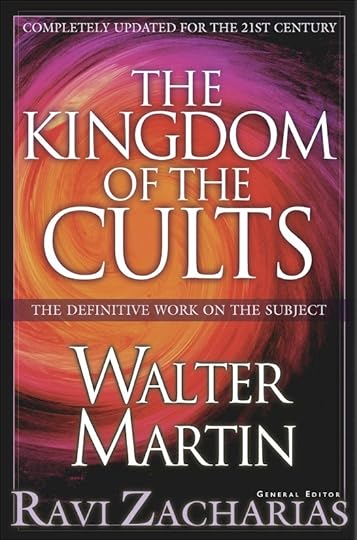
This came about as a result of a person reading the dedication (posted online) from my book, Theology of God: Biblical, Chalcedonian Trinitarianism and Christology . Here it is:
To the evangelical Protestant “cult watchers” and “cult researchers” (especially the late Dr. Walter Martin): among whom I first began utilizing the Bible in order to refute non-trinitarian heresies such as Jehovah’s Witnesses, Mormonism, Unitarianism, Christian Science, and the United Pentecostal Church, way back in 1981. May your “tribe” increase and flourish.
Someone then came into the combox for the book info-page with a gripe about how I used the word "cult." He appears to be a Catholic, but markedly anti-Protestant (leading me to highly suspect that he may be a radtrad or quasi-schismatic Catholic, who, among other things, rejects Vatican II). But I can learn nothing else about him (as so often in these foolish disputes). The dispute follows, with his words in blue:
Since the word cult comes from the Latin cultus "divine service", shouldn't a different word be used [of] groups with divergent Christology? Like heresy, for instance? Every group is a cult in its own mind in the sense that it thinks it worships God properly, offers the correct divine service. The weirdo usage of the word cult in English to mean a group with non-standard Christology is really silly.
This is the word that the evangelicals use themselves. Since I was referring to them in the dedication, I used it. I put it in quotes and indicated that it was defined as we would define "heresy."
But its not an entirely foreign usage, let alone "really silly." E.g., Modern Catholic Dictionary by Fr. John A. Hardon, S. J., gives as a secondary definition:
a particular religious group centered around some unusual belief, generally transient in duration and featuring some exotic or imported ritual and other practices.
Outside usage by the uneducated and illiterate Protestant rednecks, the only two usages of the word cult that come readily to mind are scholars calling the priests "the temple cult" and referring to "the cult of Mary." In neither case is the word intended as a pejorative, although redneck Prots probably read it that way. Its a back idea to let illiterate Prots design your definitions. After all, if you did that, the word sovereignty would mean micromanagement which it, of course, does not.
Sheer nonsense. Fr. Hardon was a Catholic scholar, and he contradicts you. There is a legitimate sociological use for the term in this fashion. Nor is your uncharitable characterization accurate. These are some of the most honorable and dedicated Protestants: fighting heresy and defending the Holy Trinity.
No one has "designed" my definitions, as explained. My preferred term is "heresy."
Blessed Pope John Paul II used the word "cult" in this secondary sense in his apostolic exhortation, Ecclesia in America (22 January 1999):
Although the Second Vatican Council refers to all those who are baptized and believe in Christ as “brothers and sisters in the Lord”, (188) it is necessary to distinguish clearly between Christian communities, with which ecumenical relations can be established, and sects, cults and other pseudo-religious movements.
Likewise, the Congregation for the Clergy: General Directory for Catechesis (approved by Blessed Pope John Paul II, 11 August 1997):
201. In a climate of cultural and religious relativism, and sometime because of the inappropriate conduct of Christians, a proliferation of "new religious movements" has occurred. These are sometimes called sects or cults but, because of the abundance of names and tendencies, are difficult to categorize in a comprehensive and precise framework. From available data, movements of Christian origin can be identified, while others derive from oriental religions, and others again appear to be connected with esoteric traditions. Their doctrines and their practices are of concern because they are alien to the content of the Christian faith.
What word does the Latin text use in those places?
I imagine, cultus. But that's irrelevant, as words can have many meanings. Check out any dictionary to confirm that. Merriam-Webster Online, for example, gives five different uses for cult. Its third is the one we are debating: "a religion regarded as unorthodox or spurious; also: its body of adherents."
The way cult was used in both citations I gave made it clear what was being discussed: "pseudo-religious" sects with non-Christian or anti-Christians elements or origins; "alien" to Christianity.
* * * * *
Published on November 08, 2012 10:59
Dave Armstrong's Blog
- Dave Armstrong's profile
- 20 followers
Dave Armstrong isn't a Goodreads Author
(yet),
but they
do have a blog,
so here are some recent posts imported from
their feed.



